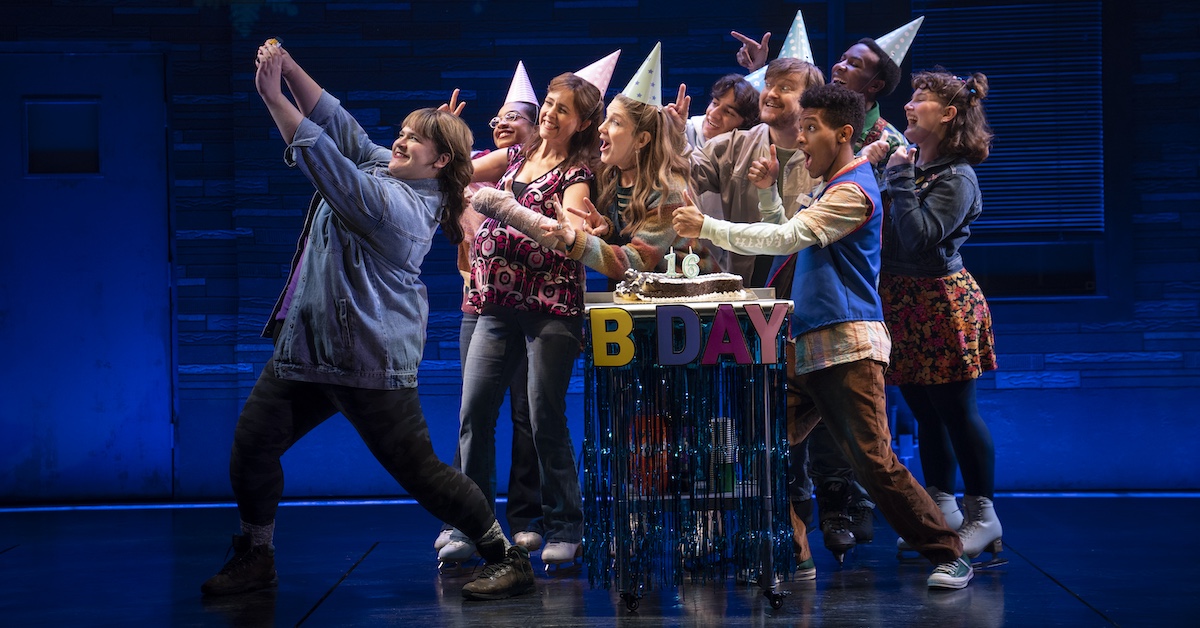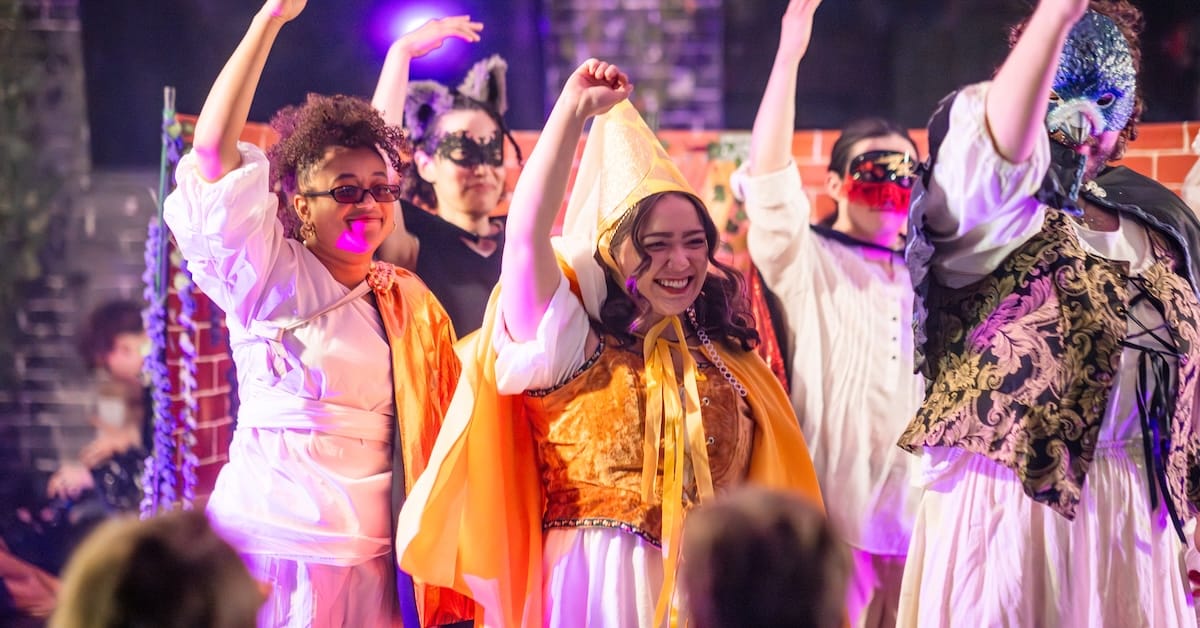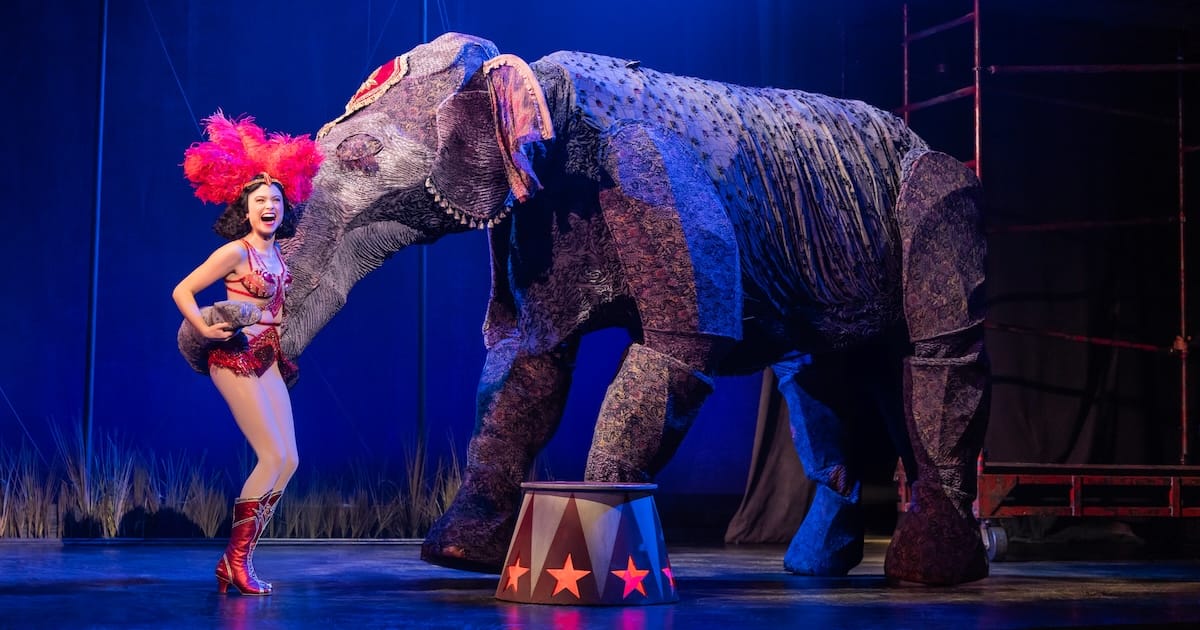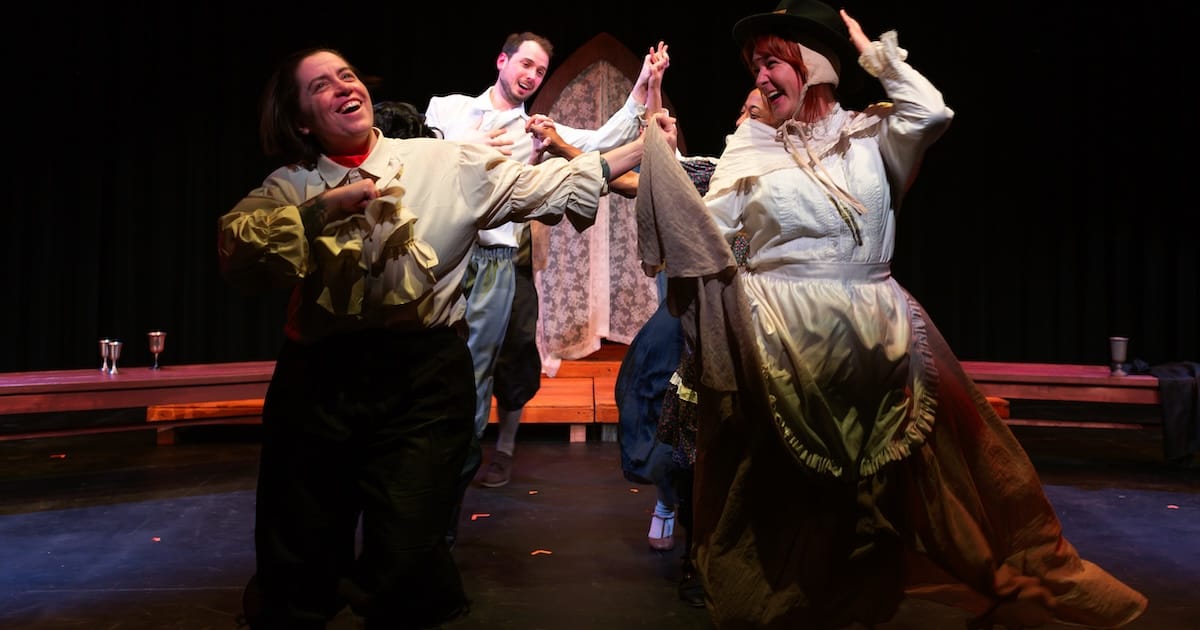The hit musical opens its touring run at the Denver Center
Kicking off its first national tour in Denver, Kimberly Akimbo is the kind of goofy, heartwarming musical that should appeal to all but the most puritanical theatregoer. Based on David Lindsay-Abaire’s 2001 comedy of the same name, this 2022 musical won five Tony Awards, including Best Musical and Best Book for Lindsay-Abaire and Best Score for Jeanine Tesori.
Both Lindsay-Abaire and Tesori were on hand for the official opening night Sept. 26, and they had to be pleased at the reception the show got from the crowd.
Kimberly Akimbo is the story of a teenage girl who’s prematurely aged due to an unspecified disease. It’s set in Bergen County, NJ, and despite being a quasi-suburb of New York City, Kimberly’s world is one of poverty, bad parents, felonious relatives and an American Dream that seems decidedly MIA. We could be in Appalachia, but then there wouldn’t be all those low-hanging Jersey jokes.
The action starts at an indoor skating rink where Kimberly (Carolee Carmello) is the new kid in town — but at first we think she’s somebody’s mother. The opening number features the show’s excellent ensemble quartet of high school nerds played by Grace Capeless, Darron Hayes, Skye Alyssa Friedman and Pierce Wheeler.
After Kimberly meets the skate-rental kid Seth (Miguel Gil) — a pivotal character — we quickly get a look at what Kimberly’s home life is like when her drunken boob of a dad leaves her waiting outside in the snow for several hours. Buddy (Jim Hogan) at least has a good reason in his mind: He deployed his bar trick of fitting an entire mango in his mouth to “win” an ancient GameBoy, which he hands to Kimberly.
It’s a perfect bit to illustrate the kind of support she’s getting as she battles what we soon learn is a terminal disease. Most people, she tells Seth, don’t live past the age of 16, while noting that her own 16th birthday has arrived.
When we meet Kimberly’s very pregnant mother, Pattie (Dana Steingold), we get even more entirely unwholesome family dynamics when she and Buddy go at it in an exchange that’s as funny as it is profane. Pattie’s trailer-park reality is reinforced by two arm-length splints — the result of carpal tunnel surgery necessary after years at a job where she manually squirted goo into knock-off Ho-Ho’s.
It’s this level of detail that makes all the strange stuff in Kimberly Akimbo somehow ring true. As the seedy parents, Steingold and Hogan are both delightful and provide a lot of the show’s many laughs.
Small but mighty
Kimberly Akimbo tells this big, weird story with a small but impactful cast of 10. David Zinn’s set design is straightforward and highly functional, with roll-in school lockers, fly-in furniture and drop-down signs. There’s one bit of impressive stagecraft when the characters are somehow actually ice-skating on stage.
It’s a neat trick that parallels the story’s own set of seeming impossibilities: a musical about terminal illness that’s as depressing as it is funny and uplifting. There’s a tuba theft, a teenage check fraud ring, a song about diseases and enough sleazy doings and disappointments to fill a Tom Waits album.
The arrival of Kimberly’s Aunt Debra pushes the whole mess into high gear. Emily Koch is tremendous in this role, with a voice to match. Debra follows a Trumpian approach where the means to whatever end should never be impeded by laws, ethics or potential harm to others. When we see her drag a mailbox through the front door into the basement, it’s clear she’s not taking her probation very seriously.
This leads to a knockout number opening Act Two where she teaches the kids the art of criming with “How to Wash a Check.”
An ideal ending
At the center of the story, Kimberly is a decent person with a heavy burden she’s reluctant to share with her new friends. Carmello is tremendous in the role, juggling the mind of a teen with the body of an octogenarian and landing just right in the middle. As her newfound friend, Seth, Gil creates a character so sweet and pure that we completely believe how he’s able to draw Kimberly out and allow her to share her pain.
As Kimberly’s end nears, Act Two is more somber than Act One — but it’s nothing like, say, Steel Magnolias. Most of these characters don’t have the emotional maturity to credibly depict empathy. What we get instead is them acting as if they do. For Kimberly’s (almost forgotten) birthday and surprise party, Buddy and Pattie gift her with pledges to clean up their act. And even as they begin to slip, we recognize them as legitimate gestures borne of their love for a child they know will soon be gone.
It’s somehow fitting that the moral guideposts discarded by Kimberly and Gil result in just what they need to make her own “Make a Wish” dream come true. It’s a simple, satisfying ending that leaves the audience rapt with our own empathy for two characters possessed of so much grace in a shitty world.
Alex Miller is editor and publisher of OnStage Colorado. He has a long background in journalism, including stints as the top editor at the Vail Daily, Summit Daily News, Summit County Journal, Vail Trail and others. He’s also been an actor, director, playwright, artistic director and theatre board member and has been covering theatre in Colorado since 1995.






Leave A Comment